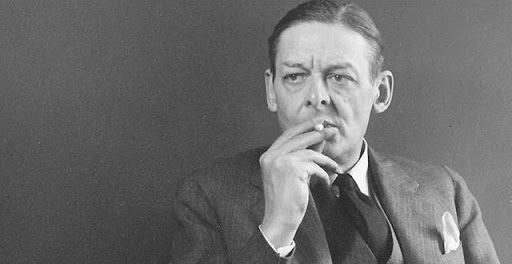
Life of Thomas Stearns Eliot an American poet, literary critic, playwright and editor. He was a beacon of the Modernist movement in poetry.
Thomas Stearns Eliot was born in St. Louis on September 26, 1888 to Henry Ware and Charlotte Stearns Eliot. Eliot had few friends as a child and spent most of his time reading. For his education, Eliot attended Smith Academy in St. Louis. This school was founded by his grandfather. He learned different language like Latin, Ancient Greek, French and German.
In 1905, he went to the Milton Academy in Massachusetts. During this time, his literary talent started to bloom. He studied poetry through many great’s poets. Eliot eventually developed his own writing style.
In 1911, he went to Harvard where he studied Indian Philosophy and Sanskrit. For his exceptional academic career, he was awarded a scholarship to Merton College, Oxford. In 1914, he went to England on a fellowship. There. There, he worked as a school teacher and bank clerk.
Eliot settled in London and met the famous American poet Ezra Pound. Pound helped Eliot to publish his work, on recognizing his talent. In 1915, Eliot struggled financially and took up a teaching job at the University of London. To earn more money, he also wrote reviews.
Eliot’s first poem was The Love Song of J. Alfred Prufrock, published it was one of his most significant works throughout his career, and the first modernist masterpiece in English literature.
Eliot continued his studies even though he was busy with his job and writing career. He worked on his doctoral thesis for Harvard, which he completed in 1916.
In 1917, he received huge success following the publication of his first book, Prufrock and other Observation. Ezra and Dorothy Pound financially supported Eliot to publish his book. The same year, he was offered a job at Lloyds Bank as a clerk. He accepted the job and worked there until 1925.
While he worked in the bank, he wrote many poems and essays. Eliot also became editor of Egoist, a London literary magazine, and worked for them till 1919. His first work published in the magazine was Tradition and the individual Talent.
In 1919, he published Poems. One of the poems was called Gerontion. It was a blank-verse monologue which had no fixed lines. A poem like this had never before appeared in English literature. In 1920, he released Scared Wood.
In 1921, he finished his first draft of The Waste Land and showed it to Pound. Pound edited many lines his poetry. With his suggestions, the poem was completed as a 434-line poem. It was based on the period after World War I. it described the post-war generations disillusionment and disenchantment; their wait for some form of redemption. The Waste Land was not Eliot’s greatest literary poem, but it was his most famous work.
Eliot founded the Journal Criterion in 1922. His poem The Waste Land was published in the first issue of the Criterion. In 1925, he left his bank job and joined Faber & Gwyer Publishing house,
Eliot continued as the editor of Criterion until it closed down in 1939. Eliot produced a few more notable poems including Ash Wednesday, a six-part poem in 1930, and Four Quarters published in 1943.
He published many religious texts through-out his life. His lectures were published as The Use of Poetry and the Use of Criticism.
In 1936, he finished his collection Poems 1909- 1935 after writing Burnt Norton. Three more poems followed this poem, called East Coker (1940), The Dry Salvages (1941), and Little Gidding (1942. These poems were whole in them but were also interconnected.
Eliot’s next major work was Old Possum’s Book of Practical Cats released in 1939. It was a book of the humorous poems for children that was later adapted into the hit Broadway Musical Cats. The musical became one of the longest-running Broadway shows of all time.
Eliot received many honors in his life for his literary contributions. In 1948, Eliot was given the Nobel Prize in Literature of his outstanding contribution to modern poetry.
In 1964, he received the Presidential Medal of Freedom. He was awarded with three Tony Awards and thirteen honorary doctorates from established universities. Eliot spent the last few years of his life in Europe. He died in London, England on January 4, 1965.
